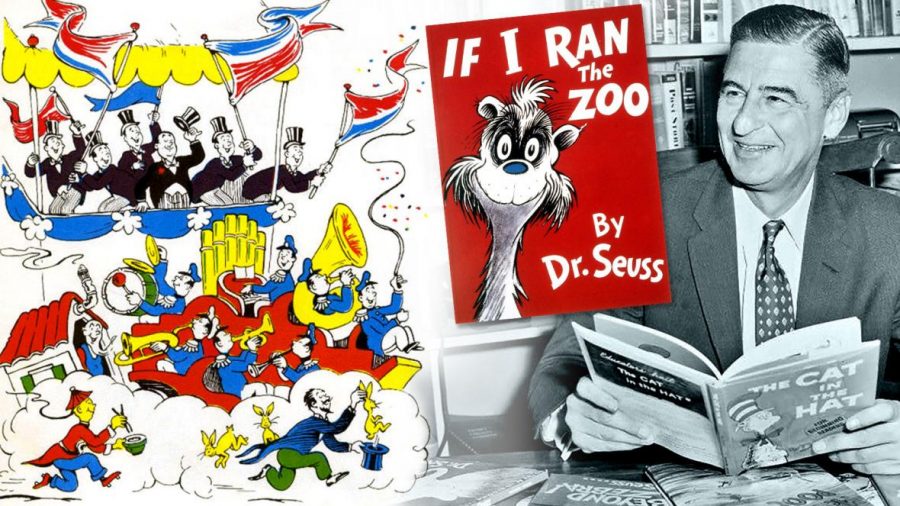HighKey
Six Dr. Seuss books no longer to be published because of racist imagery
Photo by Submitted
Image found on The Sunday Times.
Dr. Seuss, the man responsible for bringing joy to children and adults since the 1930s with his hilarious rhymes and unique characters, was a true literary icon with children’s books.
Despite his iconic books, Dr. Seuss also cheated on his wife — who committed suicide — and wrote books that contained racist and insensitive imagery. Most of us grew to ignore that, however, but not anymore.
For over 20 years, Dr. Seuss books were read and analyzed across American elementary schools. Even I remember how much I loved “Green Eggs and Ham” and the uncontrollable laughter I would experience after reading about the silly feline with a striped top hat in “The Cat in the Hat.”
But some of Dr, Seuss’ books have provoked mixed feelings among readers because of how they portray people of color.
For instance, in “And To Think That I Saw It On Mulberry Street,” a character that was described as Chinese was portrayed with two lines for eyes, wearing traditional Japanese clothes and carrying chopsticks and a bowl of rice.
A second example of one of Dr. Seuss’ books that present racist imagery is in “If I Ran the Zoo.” In this book, two characters who were said to be from Africa were depicted as wearing no shirt or shoes and instead, wearing grass skirts and carrying an exotic animal.
These are some pretty clear examples of racism and this observation among critics brought up the question, “Are these books acceptable for children and adults to read, especially in schools?”
I’ll answer that for them: it’s absolutely not.
At last, people are doing something about it. Dr. Seuss Enterprise, the company responsible for Dr. Seuss’ legacy, announced Tuesday that six of his classic children’s books would no longer be published due to the racist annotations.
Many would say the banning of Dr. Seuss’ problamatic books is long overdue but some disagree and call it “cancel culture.”
I understand the concern: what are the bigotted, racist kids going to read if these are banned?
“Dr. Seuss was shaped by a completely immersive white supremacist culture,” Ebony Thomas, a professor of children’s literature at the University of Pennsylvania, said. “Even during that time, our ancestors and elders were protesting racist works and producing alternative stories for our children.”
The books by Dr. Seuss that will no longer be published are:
- “If I Ran the Zoo”
- “And to Think That I saw It on Mulberry Street”
- “McElligot’s Pool”
- “On Beyond Zebra!”
- “Scrambled Eggs Super!”
- “The Cat’s Quizzer”
For those still upset about the canceling of these books, it’s important to acknowledge why they are being “canceled.”
They are obviously being “canceled” because of the racist imagery, but also because Dr. Seuss Enterprise doesn’t want their business to be associated with said racist imagery.
If they do not ban these books, their organization would be seen as a racist organization and that doesn’t exactly bring in the big bucks.
This organization is making this decision for their brand — they are not canceling an author because of his racial prejudice.
Instead, they are holding him accountable for his actions and acknowledging that he was wrong.
I think the renowned author, Ijeoma Oluo, describes the purpose of this decision best:
“The beauty of anti-racism is that you don’t have to pretend to be free of racism to be an anti-racist. Anti-racism is the commitment to fight racism wherever you find it, including in yourself. And it’s the only way forward.”
Hinrichs can be reached [email protected].

Allison Hinrichs is a third-year journalism and multimedia communication student. This is her fourth semester at The Spectator. Allison loves being outdoors and anything that gives her an adrenaline rush. She loves hiking, rock climbing, snowboarding and photography.











